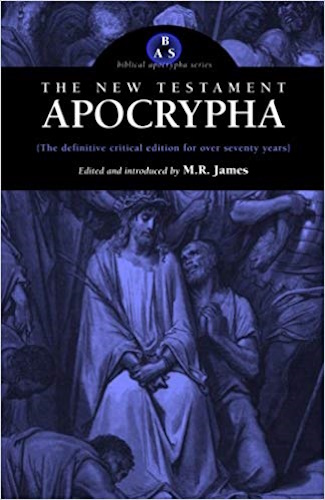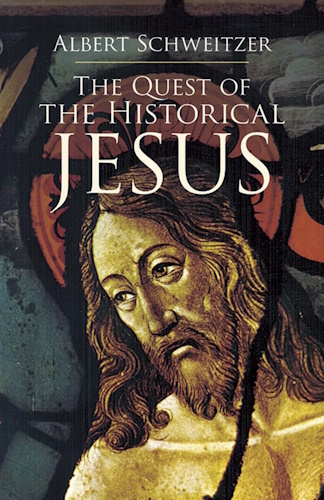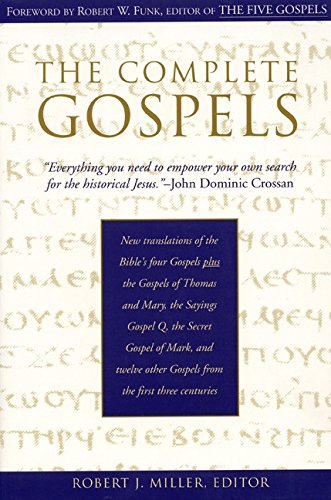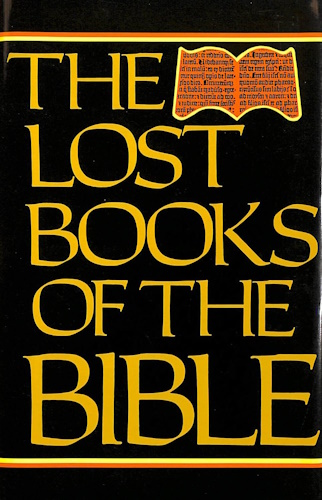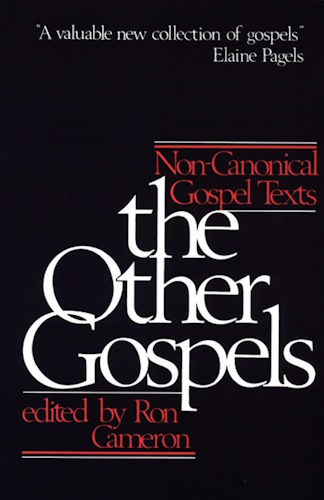
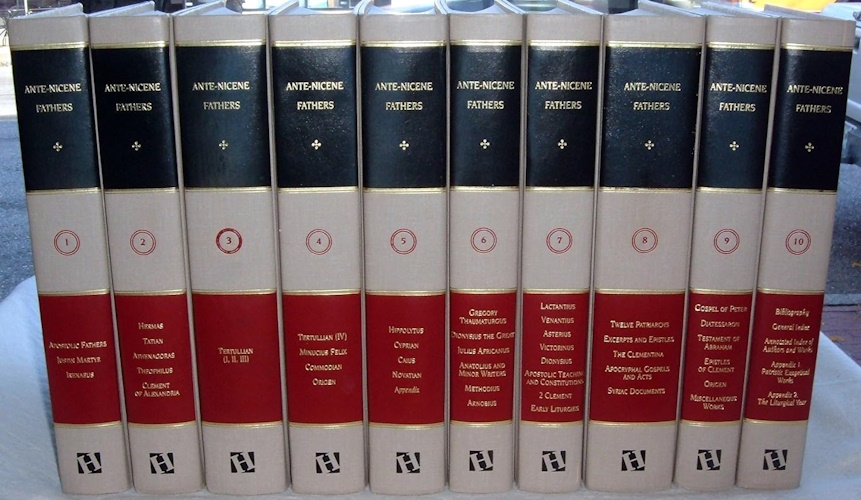
The Pastor of Hermas
Book Second-Commandments
Commandment Eigth
From: Early Church Fathers 38 Volumes
Ante-Nicene Fathers: The Writings of the Fathers down to a.d. 325 Vol. II
edited by
Rev. Alexander Roberts, D.D., and James Donaldson, LL.D.
Translated by the Rev. F. Crombie, M.A.
The Pastor of Hermas
COMMANDMENT EIGHTH.
We Ought to Shun that Which is Evil, and Do that Which is Good.
"I told you," said he, "that the creatures of God are double,201 for restraint also is double; for in some cases restraint has to be exercised, in others there is no need of restraint." "Make known to me, sir," say I, "in what cases restraint has to be exercised, and in what cases it has not." "Restrain yourself in regard to evil, and do it not; but exercise no restraint in regard to good, but do it. For if you exercise restraint in the doing of good, you will commit a great sin;202 but if you exercise restraint, so as not to do that which is evil, you are practising great righteousness. Restrain yourself, therefore, from all iniquity, and do that which is good." "What, sir," say I, "are the evil deeds from which we must restrain ourselves?" "Hear," says he: "from adultery and fornication, from unlawful revelling,203 from wicked luxury, from indulgence in many kinds of food and the extravagance of riches, and from boastfulness, and haughtiness, and insolence, and lies, and backbiting, and hypocrisy, from the remembrance of wrong, and from all slander. These are the deeds that are most wicked in the life of men. From all these deeds, therefore, the servant of God must restrain himself. For he who does not restrain himself from these, cannot live to God. Listen, then, to the deeds that accompany these." "Are there, sir," said I, "any other evil deeds?" "There are," says he; "and many of them, too, from which the servant of God must restrain himself—theft, lying, robbery, false witness, overreaching, wicked lust, deceit, vainglory, boastfulness, and all other vices like to these." "Do you not think that these are really wicked?" "Exceedingly wicked in the servants of God. From all of these the servant of God must restrain himself. Restrain yourself, then, from all these, that you may live to God, and you will be enrolled amongst those who restrain themselves in regard to these matters. These, then, are the things from which you must restrain yourself."
"But listen," says he, "to the things in regard to which you have not to exercise self-restraint, but which you ought to do. Restrain not yourself in regard to that which is good, but do it." "And tell me, sir," say I, "the nature of the good deeds, that I may walk in them and wait on them, so that doing them I can be saved." "Listen," says he, "to the good deeds which you ought to do, and in regard to which there is no self-restraint requisite. First of all204 there is faith, then fear of the Lord, love, concord, words of righteousness, truth, patience. Than these, nothing is better in the life of men. If any one attend to these, and restrain himself not from them, blessed is he in his life. Then there are the following attendant on these: helping widows, looking after orphans and the needy, rescuing the servants of God from necessities, the being hospitable—for in hospitality good-doing finds a field—never opposing any one, the being quiet, having fewer needs than all men, reverencing the aged, practising righteousness, watching the brotherhood, bearing insolence, being long-suffering, encouraging those who are sick in soul, not casting those who have fallen into sin from the faith, but turning them back and restoring them to peace of mind, admonishing sinners, not oppressing debtors and the needy, and if there are any other actions like these.205 Do these seem to you good?" says he. "For what, sir," say I, "is better than these?" "Walk then in them," says he, "and restrain not yourself from them, and you will live to God.206 Keep, therefore, this commandment. If you do good, and restrain not yourself from it, you will live to God. All who act thus will live to God. And, again, if you refuse to do evil, and restrain yourself from it, you will live to God. And all will live to God who keep these commandments, and walk in them."
201 [Command. vi. cap. i. p. 24, supra. The idea taken from Ecclus. xxxiii. 15, and Eccles. vii. 14.]
202 For … sin, omitted in Lips.
203 [Gal. v. 10, 21; 1 Pet. iv. 3.]
204 [First of all, faith, holy fear, love etc. Then, works of mercy. Could evangelical morality be more beautifully illustrated?]
205 [1 Pet. iv. 9. Who does not feel humbled and instructed by these rules of holy living. No wonder Athanasius, while rejecting it from the canon (Contra Hæresim Arian., p. 380) calls this a "most useful book." De Incarnatione, p. 38. Paris, 1537.]
206 From them … all who act thus will live to God, omitted in Vat., which ends thus: If you keep all these commandments, you will live to God, and all who keep these commandments will live to God.
The Pastor of Hermas - Book Second.—Commandments.
Commandment Eighth..
We Ought to Shun that Which is Evil, and Do that Which is Good.
![]()
![]()
-
Urantia Book, 44:0.11 - The Celestial Artisans
Never in your long ascendancy will you lose the power to recognize your associates of former existences. Always, as you ascend inward in the scale of life, will you retain the ability to recognize and fraternize with the fellow beings of your previous and lower levels of experience. Each new translation or resurrection will add one more group of spirit beings to your vision range without in the least depriving you of the ability to recognize your friends and fellows of former estates.
-
Princess Bride 1987 Wallace Shawn (Vizzini) and Mandy Patinkin (Inigo Montoya)
Vizzini: HE DIDN'T FALL? INCONCEIVABLE.
Inigo Montoya: You keep using that word. I do not think it means what you think it means. -
Urantia Book, 117:4.14 - The Finite God
And here is mystery: The more closely man approaches God through love, the greater the reality -- actuality -- of that man. The more man withdraws from God, the more nearly he approaches nonreality -- cessation of existence. When man consecrates his will to the doing of the Father's will, when man gives God all that he has, then does God make that man more than he is.
-
Urantia Book, 167:7.4 - The Talk About Angels
"And do you not remember that I said to you once before that, if you had your spiritual eyes anointed, you would then see the heavens opened and behold the angels of God ascending and descending? It is by the ministry of the angels that one world may be kept in touch with other worlds, for have I not repeatedly told you that I have other sheep not of this fold?"
-
Urantia Book, Foreword - 0:12.12 - The Trinities
But we know that there dwells within the human mind a fragment of God, and that there sojourns with the human soul the Spirit of Truth; and we further know that these spirit forces conspire to enable material man to grasp the reality of spiritual values and to comprehend the philosophy of universe meanings. But even more certainly we know that these spirits of the Divine Presence are able to assist man in the spiritual appropriation of all truth contributory to the enhancement of the ever-progressing reality of personal religious experience—God-consciousness.
-
Urantia Book, 1:4.3 - The Mystery Of God
When you are through down here, when your course has been run in temporary form on earth, when your trial trip in the flesh is finished, when the dust that composes the mortal tabernacle "returns to the earth whence it came"; then, it is revealed, the indwelling "Spirit shall return to God who gave it." There sojourns within each moral being of this planet a fragment of God, a part and parcel of divinity. It is not yet yours by right of possession, but it is designedly intended to be one with you if you survive the mortal existence.
-
Urantia Book, 1:4.1 - The Mystery Of God
And the greatest of all the unfathomable mysteries of God is the phenomenon of the divine indwelling of mortal minds. The manner in which the Universal Father sojourns with the creatures of time is the most profound of all universe mysteries; the divine presence in the mind of man is the mystery of mysteries.
-
Urantia Book, 1:4.6 - The Mystery Of God
To every spirit being and to every mortal creature in every sphere and on every world of the universe of universes, the Universal Father reveals all of his gracious and divine self that can be discerned or comprehended by such spirit beings and by such mortal creatures. God is no respecter of persons, either spiritual or material. The divine presence which any child of the universe enjoys at any given moment is limited only by the capacity of such a creature to receive and to discern the spirit actualities of the supermaterial world.
-
Urantia Book, 11:0.1 - The Eternal Isle Of Paradise
Paradise is the eternal center of the universe of universes and the abiding place of the Universal Father, the Eternal Son, the Infinite Spirit, and their divine co-ordinates and associates. This central Isle is the most gigantic organized body of cosmic reality in all the master universe. Paradise is a material sphere as well as a spiritual abode. All of the intelligent creation of the Universal Father is domiciled on material abodes; hence must the absolute controlling center also be material, literal. And again it should be reiterated that spirit things and spiritual beings are real.
-
Urantia Book, 50:6.4 - Planetary Culture
Culture presupposes quality of mind; culture cannot be enhanced unless mind is elevated. Superior intellect will seek a noble culture and find some way to attain such a goal. Inferior minds will spurn the highest culture even when presented to them ready-made.
-
Urantia Book, 54:1.6 - True And False Liberty
True liberty is the associate of genuine self-respect; false liberty is the consort of self-admiration. True liberty is the fruit of self-control; false liberty, the assumption of self-assertion. Self-control leads to altruistic service; self-admiration tends towards the exploitation of others for the selfish aggrandizement of such a mistaken individual as is willing to sacrifice righteous attainment for the sake of possessing unjust power over his fellow beings.
-
Urantia Book, 54:1.9 - True And False Liberty
How dare the self-willed creature encroach upon the rights of his fellows in the name of personal liberty when the Supreme Rulers of the universe stand back in merciful respect for these prerogatives of will and potentials of personality! No being, in the exercise of his supposed personal liberty, has a right to deprive any other being of those privileges of existence conferred by the Creators and duly respected by all their loyal associates, subordinates, and subjects.
-
Urantia Book, 54:1.8 - True And False Liberty
There is no error greater than that species of self-deception which leads intelligent beings to crave the exercise of power over other beings for the purpose of depriving these persons of their natural liberties. The golden rule of human fairness cries out against all such fraud, unfairness, selfishness, and unrighteousness.
